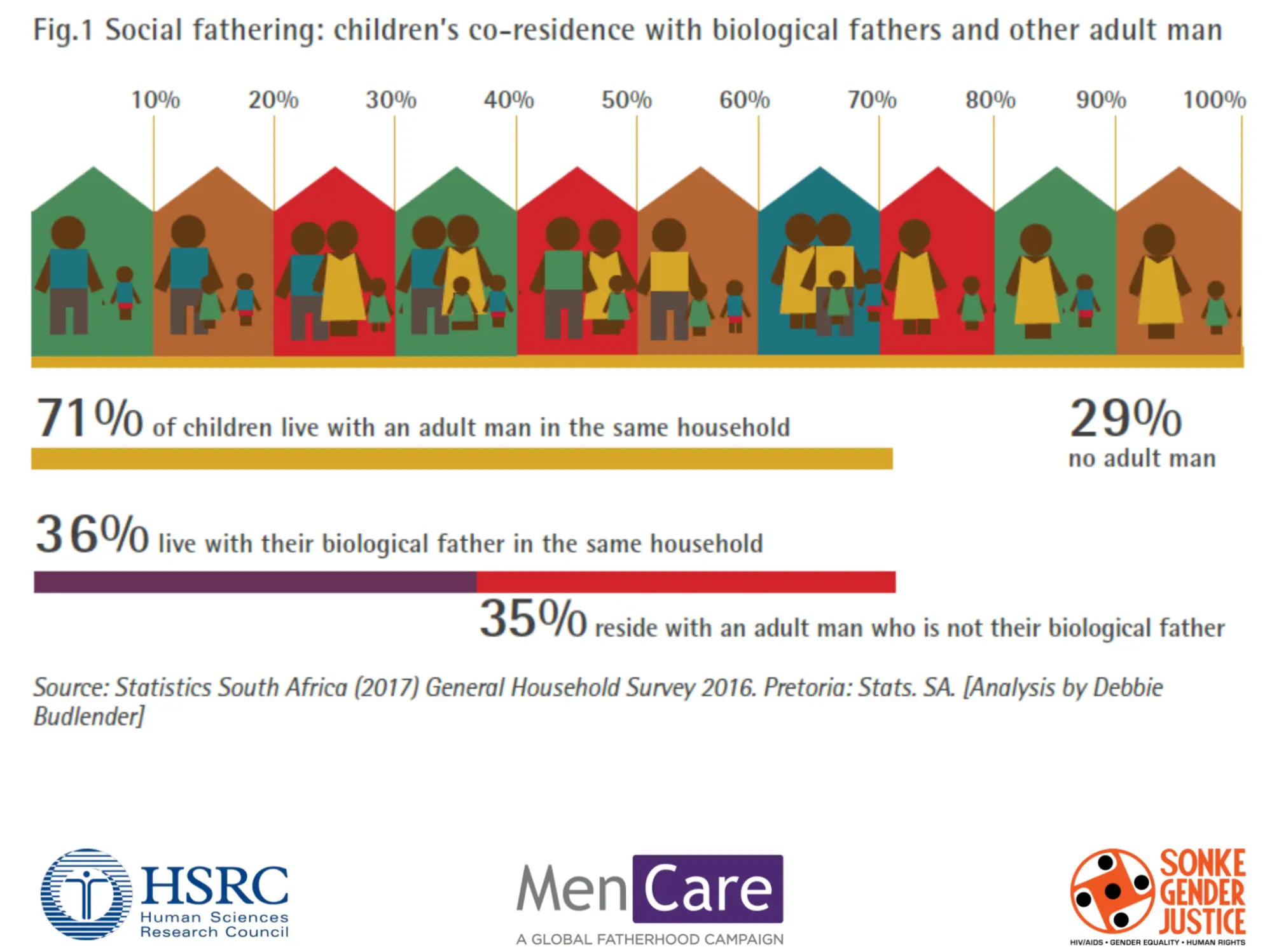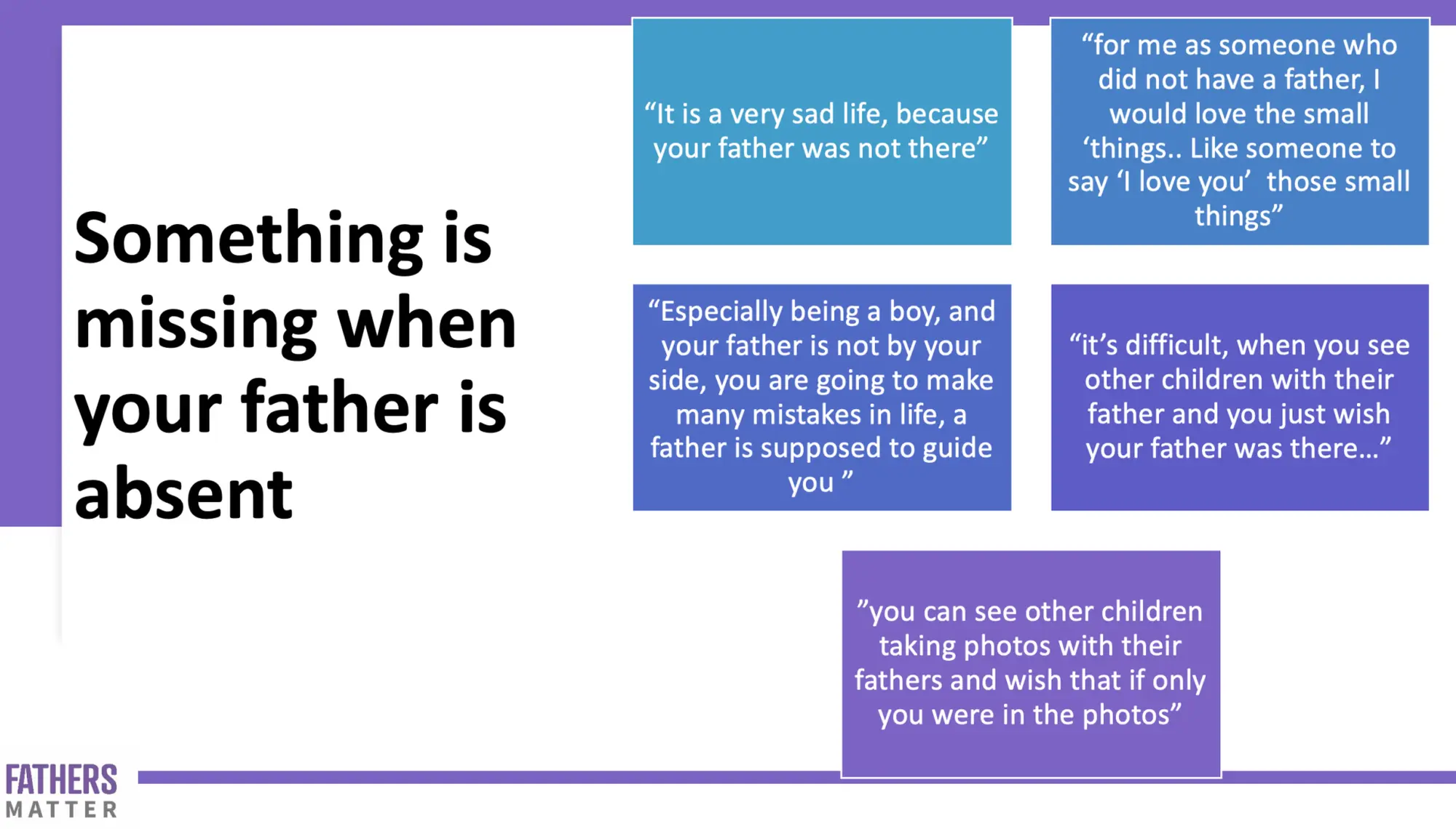Fatherhood in South Africa webinar series: Research for action
Press ReleaseFatherhood in South Africa webinar series: Research for action
“I feel like he owed me something, he was supposed to give me something (not things). That is a father’s love. I don’t want his money, I just wanted him around…and that is one thing he failed at doing.”
These words shared by a participant in the Heartlines Fathers Matter formative research report to gain insight into fatherhood in South Africa, reflect the need for positively active and present fathers.
On 16 August 2020, Heartlines, the Centre for Values Promotion, in partnership with the DSI-NRF Centre of Human Excellence and the National Research Foundation, hosted a webinar on the State of South African Fatherhood. This was the first in a four-part series that considers issues around men, masculinities and fatherhood.
The webinar was moderated by Heartlines CEO Dr Garth Japhet, and included panellists Latasha Treger Slavin, research manager at Heartlines, and Wessel van den Berg, head of the Children’s Rights and Positive Parenting unit at Sonke Gender Justice.
Van den Berg presented the 2018 State of South Africa’s Fathers report, which is an advocacy document aimed at improving policies and programmes that support father’s involvement, as well facilitating a broader narrative on fatherhood in SA.
The report indicates that although only 36% of South African children live with their biological fathers, 71% of South African children live with an adult male in the household.
The value of positive male presences in the lives of children was also emphasised in Slavin’s presentation of the Heartlines Fathers Matter formative research report that underpins the Heartlines Fathers Matter social action campaign. The report found that “social fathers” can have a meaningful impact on children’s future outcomes.
Fatherhood as provision
With respect to socio-economics, there appears to be a correlation between income levels and co-residency with children. The State of South Africa’s Fathers 2018 report found that children from lower socio-economic strata were less likely to live with both biological parents than children from higher socio-economic groups. This highlights that co-residence is strongly influenced by socio-economics and the perpetuation of migrant labour systems entrenched during apartheid.
In line with this, the Heartlines Fathers Matter Report found that in South Africa, the definition of fatherhood is closely linked to the ability to provide financially. Unemployment and the inability to provide is a barrier to active participation of fathers. Many of the research study participants used provision as a lens through which they described their fathers. Fathers who provided financially were described as being “caring and loving”, whereas those that could not provide were seen as irresponsible and unstable or uncaring. For many men in the study, the inability to provide led to feelings of shame and low self-esteem. This, together with rising unemployment rates in South Africa, left many men out of active participation with their children.
Family relationship dynamics
The Heartlines Fathers Matter Report also identified the relationship between a child’s mother and father was as a significant factor influencing men’s ability to be positive, active and present fathers. Many participants shared stories about how their mothers and extended families acted as gatekeepers to the father-child relationship. Findings indicated that mothers sometimes limit access to a child if they don’t receive financial support from the father. Access to children is also impacted if the relationship between the two parents is generally poor or if a father is in a relationship with another woman.
The research also found that gender roles, norms and expectations are socially constructed and these play a role in defining how men father.
“When you start playing with your kids, culture will say: ‘This one is not man enough, he's busy with children’ and at that time you're trying to be around your kids…it has a way of suppressing you by making you feel inferior as a man in the community,” explained another focus group participant.
However, some men have intentionally worked to change their relationship with their own children, despite growing up without positive father role-models themselves. For these men, fatherhood brought the realisation of what they had “lost” in the absence of their own fathers, and an active decision to be positively present for their children.
Going forward
Sonke Gender Justice will be launching a new State of South Africa’s Fathers report in 2021 that will provide findings on social fathers, father involvement, and attitudes to and the use of paternal leave. It will also cover a collection of published research and there will be a launch of a new institution which focus on fatherhood research and advocacy.
The next events in the webinar series will cover the topics of overcoming toxic masculinities in South Africa, fatherhood and the first 1 000 days, and positive interventions for fathers. For more information, visit our Events page.

Heartlines
At Heartlines, the Centre for Values Promotion, we believe in the power of story and positive values to touch hearts and transform behaviour.
Featured


